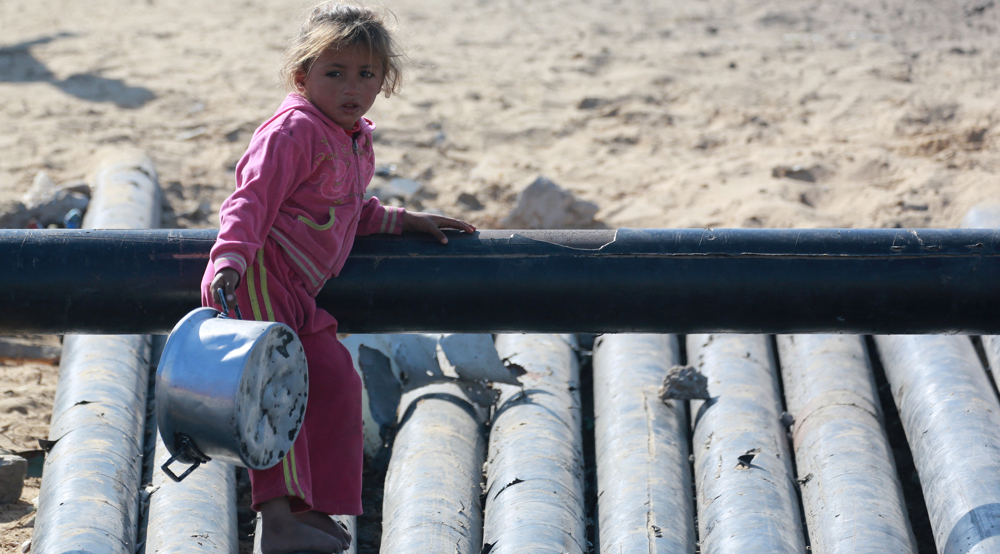What is Netanyahu doing in Africa?
Benjamin Netanyahu is on a four-nation tour of sub-Saharan Africa for the first visit of Israel’s prime minister to the continent in almost 30 years.
He arrived in Uganda on Monday on the first leg of a four-day trip which will also take him to Kenya, Rwanda and Ethiopia.
By visiting Africa, the Israeli premier wants to end decades of hostility and convince African countries to stop voting against Israel at the United Nations.
Netanyahu also seeks to cast off Israel’s pariah status in the African continent as he faces growing criticism from Western allies over the dim prospects for a resolution to the decades-old Israeli-Palestinian conflict.
In the United Nations, Israel is a constant subject of rebuke over its settlement enterprise in the occupied West Bank and other violations, including its crippling blockade of the Gaza Strip.
One of Netanyahu’s objectives is to convince African nations not to vote against Israel.
“In the UN there are many [resolutions] which target Israel and we want to change this with the help of the Africans,” Arye Oded, a former Israeli ambassador to Kenya and Uganda, told German broadcaster DW.
Rocky relations
Israel’s relationship with African nations has historically been fraught because of support for the Palestinian cause from many countries on the continent.
The uneasy history of relations is evident in the fact that no Israeli leader has visited sub-Saharan Africa since Yitzhak Shamir in 1987.
Scores of African countries, including all the countries that Netanyahu is visiting, cut ties with Israel following the 1973 Israeli-Arab war only to restore them in the 1990s.
Israel’s ties with African countries were further frayed because of its historic support for the apartheid regime in South Africa.
At a recent conference on Africa-Israel ties, Israeli foreign ministry official Yoram Elron noted Tel Aviv’s need for support from African nations in international forums.
“Today relations with the African continent are high on our foreign policy agenda,” he told dozens of African dignitaries and diplomats.
Skepticism
However, African nations that have survived colonialism and more recently Western plans are skeptical.
Questioned about Israel’s ties to apartheid South Africa, Netanyahu said: “It stopped under my predecessors and I am glad it did.”
Pressed to state whether he had any regrets about the cooperation, he added: “Yeah, and I am glad it [ended].”
Military exports
Israeli exports to Africa totaled about $1 billion last year, about 2% of its total exports.
With insurgencies and Takfiri militancy growing across Africa, including Qaeda-affiliated al-Shabaab and Daesh-linked Boko Haram, Israeli leaders are looking to sell advanced military equipment to the continent, the New York Times wrote.
The move comes as Israeli exports to traditional markets in the EU and US have become volatile, Ohad Cohen, head of foreign trade at Israel’s Ministry of Economy and Industry, told the Times.
“We are trying to diversify our exports through channeling efforts to markets that are growing more rapidly than [others],” he said. “Africa is one of them.”
Refugee evictions
Netanyahu is also expected to discuss the eviction of around 40,000 migrants and refugees from Sudan and Eritrea who entered Israel through Egypt.
According to the British daily Financial Times, Israel has reached an agreement with Uganda and Rwanda to resettle the refugees.
Last year, Israel ordered African migrants to choose between deportation and indefinite imprisonment. About 2,000 Africans are reportedly held in Israeli prisons.
Iran’s economy grew 2.7% y/y in Sep quarter: CBI
VIDEO | Freelancers in Gaza strive to stay online amid genocide
Mikati demands Israel's withdrawal from south Lebanon
Yemeni army strikes Israeli military sites with drones
‘Clock ticking’: UNRWA slams unjustifiable killing of children in Gaza
BP to be sued in Britain for supplying oil to Israel
VIDEO | Press TV's news headlines
Israeli strikes on north Gaza hospital ‘extremely dangerous, terrifying’: Director










 This makes it easy to access the Press TV website
This makes it easy to access the Press TV website